
All your dinner conversation centers around the Zika virus
There’s having an interest in medical subjects and then there’s straight-up obsession. “When someone is so preoccupied about a health problem that they cannot focus on anything else, that’s a classic sign of hypochondria,” says Lauren Muhlheim, PhD, a psychologist at Eating Disorder Therapy LA. It can be hard to stop talking about an obsession once you start so instead of monopolizing every conversation with your health woes, set aside 20 minutes each day to write or talk out your worries and then no more until the next day, she advises. Find out the 7 silent signs of high-functioning anxiety.

You get a second opinion for your second opinion
And a fourth and a fifth… If you’re still convinced you have cancer even though multiple doctors have examined you and given you a clean bill of health, it may be a sign the problem is more mental than physical, Dr. Muhlheim says. To calm your fears, practice challenging fearful or catastrophic thoughts, she says. For instance, ask yourself, “What is the evidence that I have X? What did the doctor say? What is the most likely explanation?”

Dr. Google is your best friend
Who hasn’t found themselves falling down an Internet rabbit hole after googling “What is this rash?” But if you find yourself continuing to research a particular health problem online, night after night, you may be a hypochondriac, Dr. Muhlheim says. The cure? “Avoid googling medical symptoms online—it tends to only increase anxiety because you can find evidence for anything online,” she explains. In the meantime, try one of these 10 natural remedies to calm anxiety.
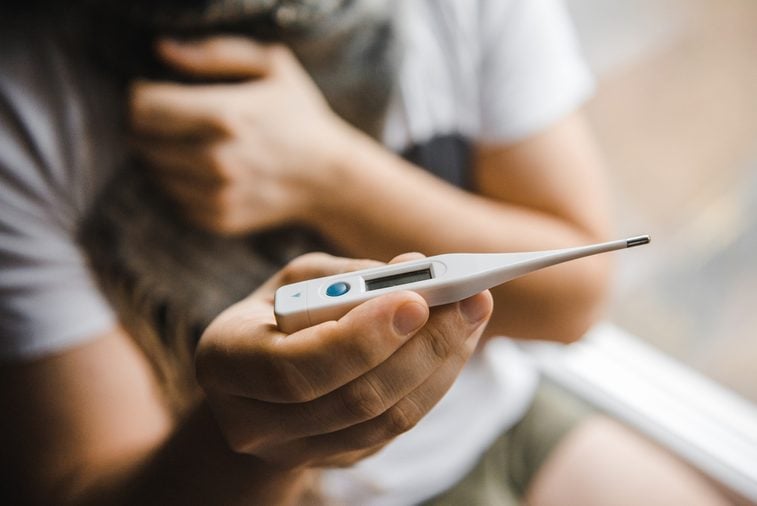
You carry a thermometer in your purse
Constantly scanning your body for signs of illness—”Do I feel hot?” “Does my poop look too brown?” “My foot is itchy and I just ate clams!”—is a sign of hypochondria, Dr. Muhlheim says. Resist these urges to check your body, she says, as they can turn into a self-fulfilling prophecy, creating symptoms that aren’t really there.
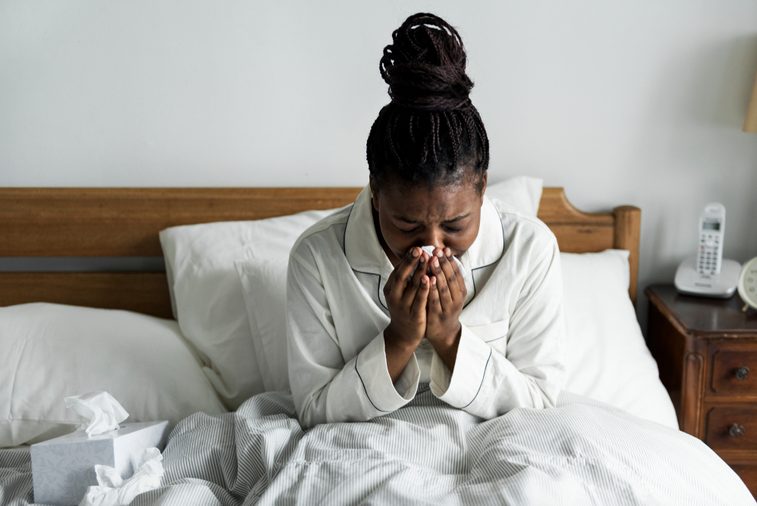
Your friend’s cold might as well be leprosy as far as you’re concerned
Do you consider all small children germ factories? Do you ditch your friend the second she sneezes? Avoiding any situation that could potentially make you sick is a red flag for hypochondria, Dr. Muhlheim says. Instead of being limited by your fears, learn calming and meditation techniques to help you manage your anxieties while you keep living your life, she says. You may also want to check out this hypochondriac’s guide of what NOT to do during flu season.
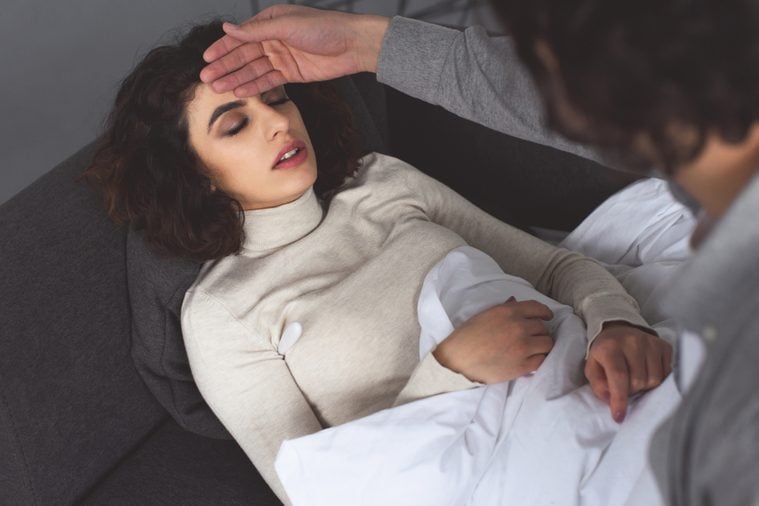
Repeatedly asking the same question about symptoms
“Do I look feverish?” “Does this toe look crooked to you?” It’s natural to ask those around you for help but if you’re constantly peppering your loved ones with questions, asking them to verify the health issues you think you have, you may be a hypochondriac, says Anna Prudovski, a psychologist and clinical director of Turning Point Psychological Services. If you’re truly worried, before heading to the ER check out these 10 clear signs you’re having a panic attack (not a heart attack.)

Your doctor is at the top of your frequent calls list
Calling your doctor is a quick way to get reassurance for your health worries but for hypochondriacs, this can turn into a vicious cycle of worry and endless phone calls, Prudovski says. “Remind yourself that nothing in life is certain and that you don’t need to check every single ‘symptom’ even if you have a strong urge to do so,” she advises

Asking your best friend what her poop looks like
Constantly drilling others on how they are feeling and comparing your symptoms to others is a fast-track to hypochondria-town, population: you, Prudovski says. But you can find other ways to manage your worry about your health, like taking a walk or hitting the gym. Hint: Exercise is one of the 12 simple ways therapists deal with anxiety.

Cornering the MD at the PTA meeting to ask about your skin tags
Doctors are used to getting lots of medical questions during their off time and will often tolerate a few but if you can’t resist finding any medical professional in the vicinity and talking their ear off about your symptoms, you may have crossed over into hypochondria, Prudovski. “The most effective treatment for hypochondria is cognitive behavioral therapy (CBT),” she says. “It helps people address their unhelpful beliefs, correct their irrational thoughts, and to change their problematic behaviors.”
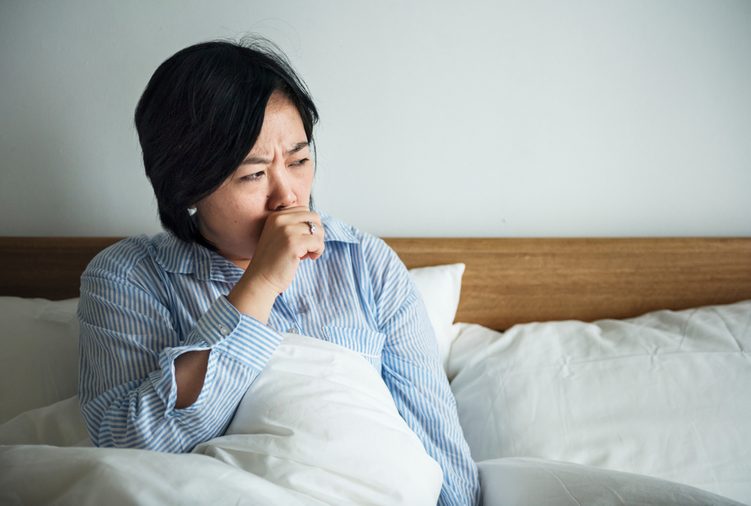
Every throat tickle means you have pneumonia
Hypochondriacs are notorious for catastrophizing—taking a small symptom to it’s worst possible outcome, says Forrest Talley, PhD, Invictus Psychological Services, in Folsom, California. These fears quickly become impervious to reason and logic so to help keep yourself in check, have a friend or family member that you can call to keep you accountable. This doesn’t mean they try to talk you out of your symptoms but rather simply remind you that you have a tendency towards hypochondria and are likely just fine.

You feel sick all the time
Do you constantly move from one health worry to the next, never feeling well? Having a rotating cast of vague symptoms that never seem to have any medical cause when you see a doctor may be an indication of hypochondria, says Heidi McBain, a licensed professional counselor in Texas. The next time you catch yourself cataloging every twinge and pain, try to divert your mind by focusing on your senses and staying present in the moment, she says.

Nothing and no one can make you feel better
Friends tell you that you’re fine. Your spouse says you seem great. Your doctor has given you a clean bill of health. Yet if after all this you still feel sick, there’s a solid chance you’re suffering not from obscure illness but from hypochondria, McBain says. Don’t get caught in this negative loop. “Keep a gratitude journal to help you see and focus on all the positive aspects of your life,” she advises.
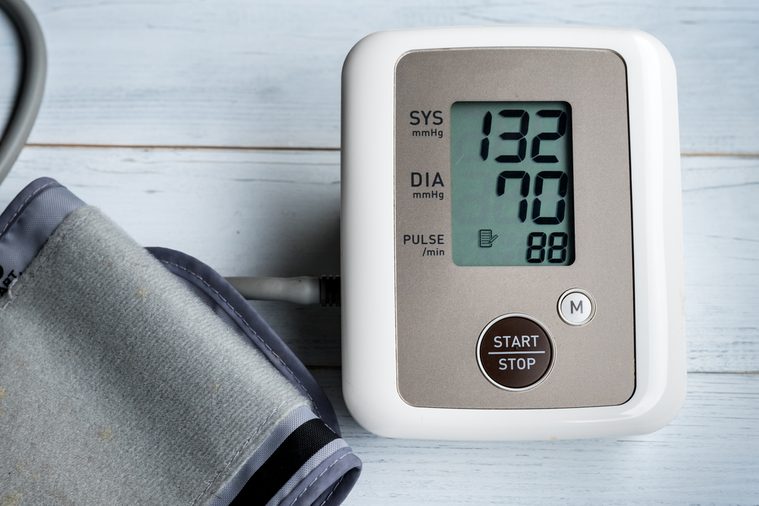
You keep redoing the same tests
People with illness anxiety disorder (IAD), a more accurate term for hypochondria, may have difficulty trusting their clinicians and test results, and may keep asking for additional exams or testing or even to repeat prior tests, says Azra Alic, LCSW, an anxiety disorder specialist. “The thing is, there will always be one more test that could be run or one more doctor to visit, but at some point, you have to make a choice between living your life fully in spite of uncertainty versus missing out on other parts of your life because you are so busy pursuing certainty,” she says.
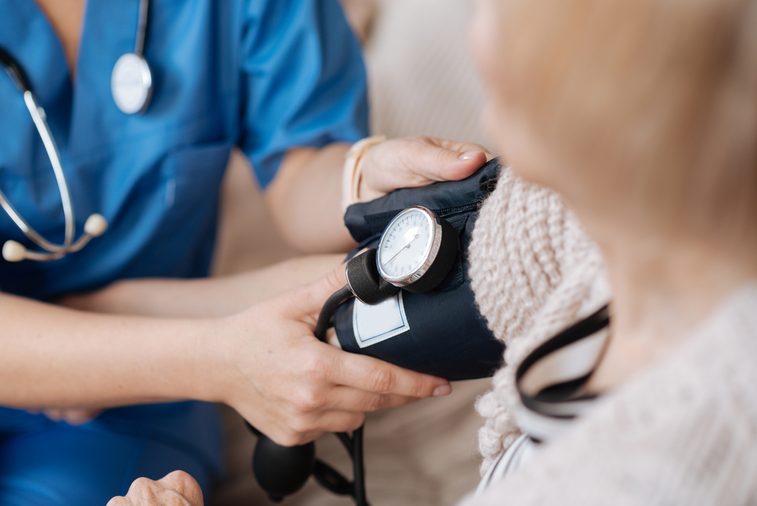
You avoid doctors like the plague (ha!)
This may seem counter-intuitive but some hypochondriacs avoid seeing medical professionals or making appointments for routine checkups as they are so anxious about the possibility of getting bad news, Alic says. Peace will come in accepting that there are no black or white answers about your health and avoiding the doctor can make a potential issue worse, she adds. Next, find out the things to never say to someone suffering from any form of anxiety.